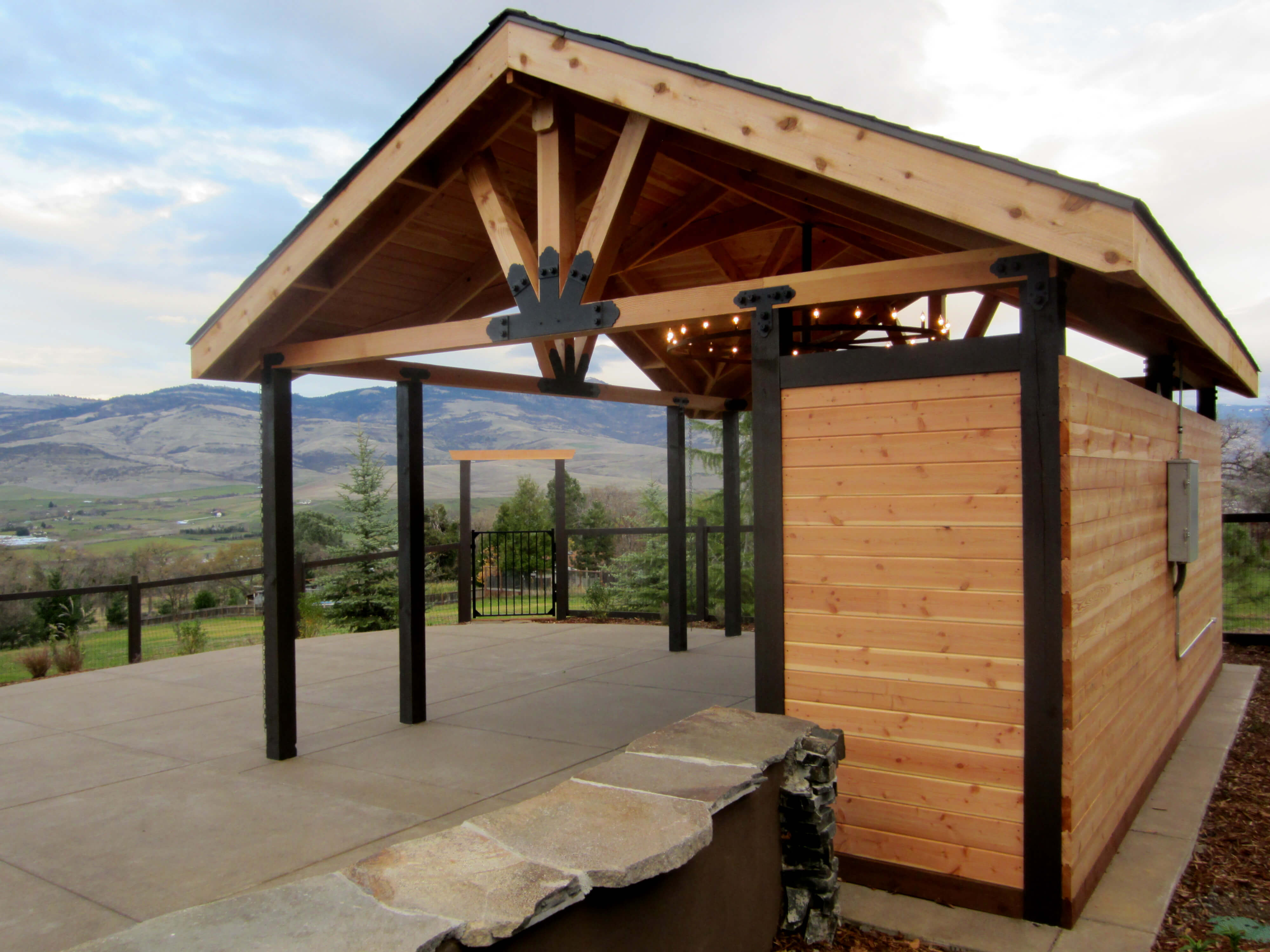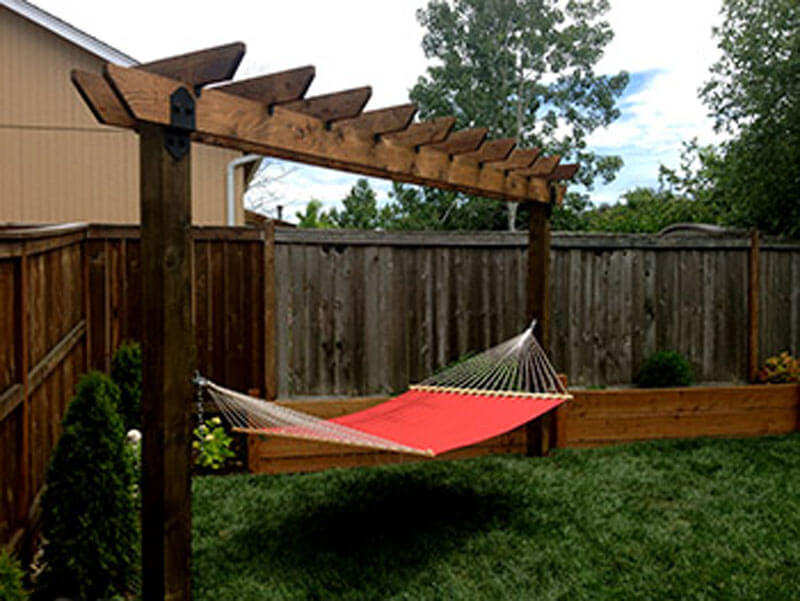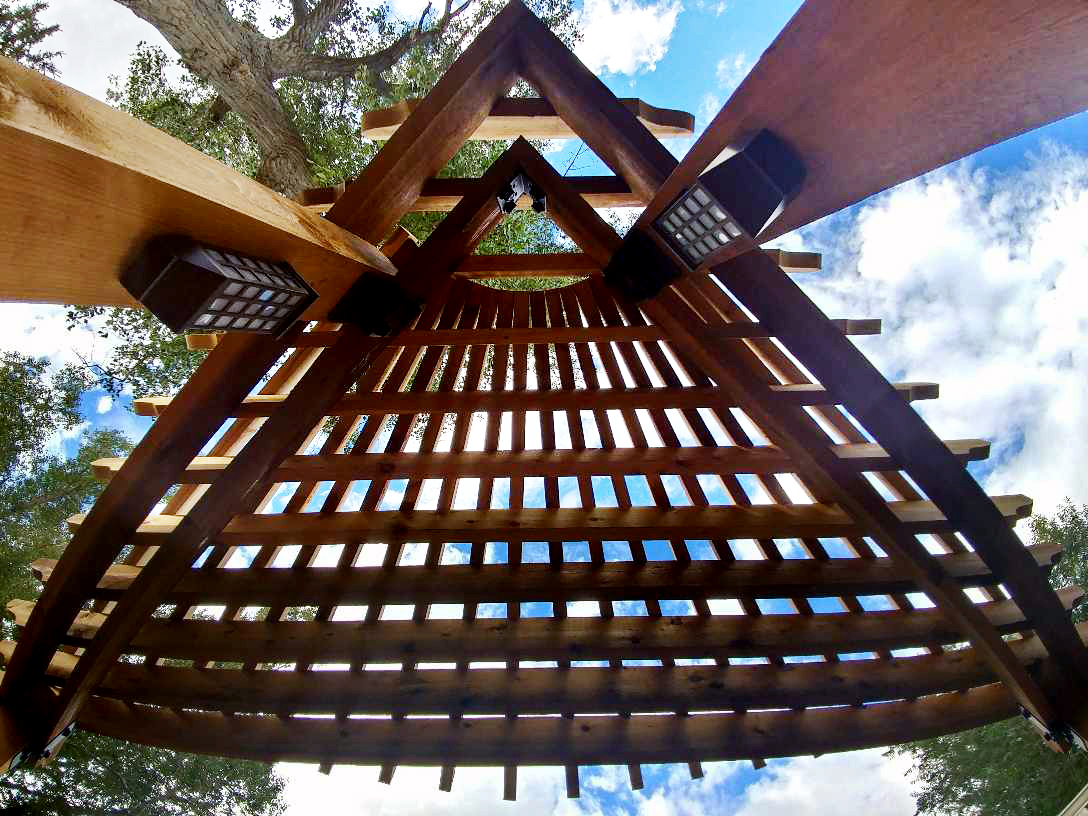Making a Dog Window in a Fence: Simple Ways to Give Your Dog a Peephole
I have a paranoid dog. She’s sweet but she has an anxious streak. That’s something that caused me to nearly stop letting her out in my front yard. Someone would walk down the street, and little Hershey would hear a noise and immediately start barking. She couldn’t tell if they were coming onto my property or not, because my yard is hidden from the road by a fence. So, I guess she figured ‘better safe than sorry,’ and just started barking. But before I decided to ban her from the yard, I considered the alternative–making a dog window in my fence.
It worked. When she could see the people on the street, they made her less anxious. She stopped barking at all the passersby and we got to enjoy the yard again. It was an easy fix. I was able to do it with a couple of sturdy fence inserts and a few hours of time. If you have an anxious dog like mine, I can’t recommend making a dog window in your fence enough. It might not work for every dog, but it definitely worked for mine. Here’s the down-low on dog fence inserts.
Steps for Making a Dog Window in a Fence Using Inserts
I like this project because it’s one of those easy ones you can do in an afternoon as long as you have the right tools. It just involves cutting a hole in your fence and creating a simple window. It also saves you a lot of barking in the long run. If you decide to take on this project, you’re going to need:
- A framing trim with installation hardware: Your trim is the material which will surround your dog’s window. It makes up the frame and will be used to stencil the hole you make in the fence. You can make your own or you can buy one premade.
- An electric drill bit: You’ll need an electric drill bit to start your hole so you won’t crack your wood when you begin cutting the hole in the fence.
- A circular saw: You’ll need this to cut out the window in your fence. Some people may be tempted to use a reciprocating saw, but I find the circular saw gives you a smoother line.
- A windowpane: Your windowpane choice is an opportunity to get creative. There are a few basic styles you can consider for that dog window, like:
- A DIY acrylic or wire mesh window: This is the cheapest option, and just involves buying a piece of acrylic sheeting or sturdy wire mesh and cutting it to fit your needs. While this is very cost efficient, it isn’t particularly attractive (in fact, my wife objected to this idea on the grounds that it would look tacky). It also requires a bit more work as you have to cut and measure the insert yourself. But it’s definitely a viable option.
- A clear plastic bubble: You may have seen this one before in your neighborhood. It’s basically a plastic bubble that your dog can put his head in to look outside. It comes precut with the hardware needed to install it, so it’s easy, but some find it looks a bit silly.
- A decorative fence insert: Some companies make decorative metal fence inserts–often these are created as inserts for your gate (to give an old world look), but I find that they make beautiful and long-lasting dog windows. Another plus is that these come with the mounting frame, the insert, and all the hardware you need to build your dog window–minus the power tools. The company I chose offered a beautiful fleur-de-lis-style insert which I chose, and they also offered a speakeasy insert that I also considered–it looks a bit like a grate to put over the hole. Just about any decorative insert can work as a window to give your dog at least a glimpse of the outside and calm their nerves. You can also find decorative hardware inspiration for gates here if you want to match your gate hardware to your decorative fence insert.
Those are your basic choices for dog window styles, but you’re also going to want to consider placement. That will have a lot to do with the size of your dog, how many dogs you have, and if you’re considering doing multiple windows,
What to Consider in Placing Your Dog Window
A lot of people want to line up their window with their dog’s line of sight, but that isn’t absolutely necessary. Plus, if you have a very small dog, this can look pretty strange. Ideally, you want to place your window knee to waist high, around the midpoint in your fence. You’ll also want to consider a few other things before you start the project:
- Fence post stability:If you have a larger dog, you may want to consider reinforcing your fence posts around your peephole. It’s very likely that when your dog sees someone coming, they’re going to jump up on the fence. While this might not be a big deal once in awhile, it’s probably going to happen multiple times a day. That kind of repetition can weaken fence posts after a while and may eventually result in a broken fence. If you’re concerned that may happen, consider adding some steel fence posts using steel to wood fence brackets to give that fence a bit more staying power.
- Windowpane strength: If you decide to go with acrylic sheeting instead of decorative inserts, keep in mind, again, that the dog is probably going to bump against that window a lot. You’ll definitely want an acrylic product that’s strong and resistant to scratching. This was another reason I opted for decorative inserts–they’re sturdy, hot-dipped galvanized steel that’s coated with high-quality powder coat, so they’re likely to long outlast acrylic. And if you’re worried about choosing the right fastener for your ACQ pressure treated wood fence, decorative inserts and the hardware they come with are compatible with ACQ lumber (if you buy from a high-quality manufacturer).
- Multiple windows: Another good defense for your fence is to install multiple windows. This will keep them from going to one window repetitively over time and breaking your fence down. If you choose decorative inserts, you can take this opportunity to use them to improve the way your fence looks while giving your dog more visibility onto the street.
If you have a nervous dog like mine, decorative fence inserts can be a great way to give them more visibility and in turn, more security. When dogs can’t see something, they think it’s a threat. Giving them windows to the world makes them see that the people that walk down your street aren’t threats, but neighbors–and they’ll be able to tell when that neighbor has passed by, signaling them to stop barking!
I highly recommend using OZCO products for completing a job like this. Their decorative inserts are simultaneously a beautiful and easy way to make a dog window in a fence or gate, and they’re built to last (and last). Also, they come with all the supplies you need, making this a single afternoon project even if you’re installing multiple windows. I’ll leave it up to you to choose the material you use for your dog window project, but really, which is going to last longer and look better: powder-coated steel or acrylic sheeting? Give decorative inserts a try, and see what they do for your dog. I bet they make Fido just as happy as they made my Hershey.












Leave a Reply